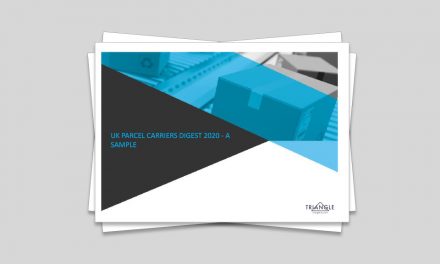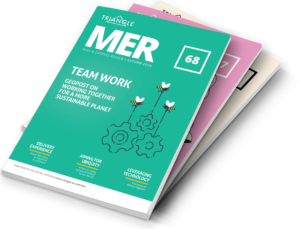
A judge’s tale
Entries for the 11th World Mail Awards will be accepted from Monday 1 February, at www.mailawards.com. The winners will be announced at the awards ceremony on 15 June in Copenhagen. Mail & Express Review editor John Modd talked to a number of the more experienced judges to get their perspective on the process, and to learn how applicants can make more effective submissions. The first item for discussion was the merit of the Awards.
The Value of the Awards
Rod McDonald expressed a widely held view: “I think recognition in the postal community of excellence is the major one”, along with the opportunity to share best practice and new ideas. Derek Osborn made the point that the awards foster a “forward looking approach to a business that is often portrayed through the usual depressing mantra of declining volumes”.
For those shortlisted, and particularly the winners, other benefits are prestige, and the ability to promote their companies in a favourable light, not to mention commercial benefits. James Thornton added “recognition in an industry forum…is a reward in itself for both management and staff”.
Raising the Profile of the Award Winners
All the judges feel more should be done to follow through with stories and articles on the winners, particularly the reasons why they have been successful. In the short term Triangle”s new Post&Parcel website is a useful medium, whilst Mail & Express Review can be used to follow up on winners” experiences, or look at groups of winners in particular categories. Larry Chaido thought “it should be a given that the winners update our community from 12-24 months after their win. We should make this part of the ceremony”.
Pushing out press releases to business publications around the world is also a good idea according to most of the judges. Carlos Silva wondered “whether it will be possible to establish a kind of protocol with other magazines so that the winning submissions may be given some space”.
Being a Judge
All those interviewed are very positive, regarding being a judge as an honour, and an opportunity for personal learning and networking. James Thornton”s comment “I get a kick out of it” is a pretty fair summary, although everyone pointed out it is hard work and requires a real time commitment.
Derek Osborn”s view is not untypical: being a judge is a “good opportunity to contribute to the industry in a rewarding way. It is motivating to me and I think I can play a role and am prepared to put quite a bit of time into it, with some payoff in terms of profile”.
In looking at their skill sets, the judges made numerous references to broad industry knowledge, commercial awareness, objectivity, persistence, listening and communication skills, and team working.
The Award Categories
The judges have different views on the value of some of the categories, and some see a risk of overlap between the awards. For instance, Luis Jimenez felt there are too many categories which can make it “difficult to discern the differences… For example, ecommerce, technology and innovation have their overlaps…Just to get the thought process started, innovation could perhaps be product innovation, which is sorely needed in the industry. Technology could refer to a specific area of the value chain, such as processing technology or customer contact technology”.
Perceived gaps include various areas of marketing, operations and revenue improvement, and green issues. Alice Kijak said: “I always thought there should be an award for a postal operator who encourages greater use of advertising mail…”
Multiple Submissions
There have been comments in the past regarding the appropriateness of the same award submission being used across multiple categories. In other cases the same submission has been entered in more than one year.
A significant proportion of our judges feel that the rules need to be tightened for the benefit of applicants and judges alike.
Listen to Paul Donohoe: “This would indicate that there is an overlap in the categories. Alternatively, it could also indicate that the criteria for the application to be accepted for a category are not so clearly defined or understood, and vetted by the organising committee”.
James Thornton was quite clear: “I think the applicant should enter one award category only with the same submission. Otherwise it becomes a bit like a lottery. The more categories you enter….the more chances you have of winning”. So was Rod McDonald: “If we are seeking the best in one category then dual applications water down the importance of that category”.
But consider Alice Kijak’s alternative view: “There is no reason the entry shouldn’t be considered in more than one category since you are mixing areas of business with processes. As an example, an innovation could apply within technology, retail, e-commerce, or customer service”.
That said, she is one of a number who suggest moving to a distinct submission for each award category and clearly related to specific criteria for that award. “Each award should have its own application.” “In order to create greater differentiation, it would be necessary to specify explicit criteria for each award and evaluate each applicant to ensure they meet these criteria” (Donohoe). This might be linked to “a thorough pre-sorting of the entrants in the right category” (Silva).
The Judging Process
It is clear that there are real opportunities for applicants to present better and more focussed submissions and help the judges make the right decisions more effectively.
The judges are looking for a much clearer link between the criteria for the award and the words in the submission. In many cases they want to see fewer words. Few things annoy them more than overlong submissions with too much jargon and too much technical detail. “The longer the submission the harder to extract what is really essential…I would recommend pre-analysis of the submissions to get rid of unnecessary information,” Carlos Silva commented.
“Material should inform rather than impress-and keep to the point. We just need to know the essential reasons why the submission qualifies for the award” (Thornton). He added that the value of good written submissions is in “the discipline required in expressing the thinking and strategy….and spelling out what changes were affected and their commercial significance”.
That said, some submissions provide too little basic information and create an equally difficult problem for the judges. As in most things in life, balance is everything!
Overwhelmingly the judges want to see a maximum number of pages in the submission (five is the most commonly suggested), with a one page summary of the key reasons why the applicant feels the submission is strong against the award criteria. A number suggest a standard template be used. To quote Luis Jimenez: “Perhaps a one page summary would be good that specifically addresses the value proposition along each of the judging criteria”.
Judges want facts not opinions. They like to see independent evidence of what the applicant is claiming. They also look for some hard numbers and key performance indicators rather than statements of intent. Larry Chaido went further: “There needs to be a third party verification process…to ensure that submissions are as they are and successes are not exaggerated.”
Sometimes the judges have further questions particularly in preparation for the decision meeting. They want easy access to a nominated person to follow up quickly any queries, typically by email. There were differing views as to whether this should be supplemented by a short video from shortlisted applicants, or the facility for video conferencing with them. Whilst some judges feel this would increase their ability to give full consideration to submissions, others are concerned it might work against submissions from less developed countries and/or where English is not a natural language.
Summary
The judges’ comments provide food for thought for both Triangle Management Services as the organisers and for the award applicants themselves.
Our judges make a very strong case for tightening up the submission rules, particularly overall length, the provision of a one page summary, and a greater focus on real measures and third party validation wherever possible. There is nothing to prevent 2010 applicants from listening to their comments, and organising their submissions accordingly.
What is undeniable is that the Awards are now well established and provide real value not just to the winners but to the industry at large. And we are fortunate in having such committed and capable judges who give so much of their time and energy to ensuring the winners really are the best of the best.
Contributors:
Larry Chaido, Director, Transglobal Consultants N.A. Incorporated
Paul Donohoe, Electronic Postal Services Programme, Universal Postal Union
Luis Jimenez, Independent Consultant
Alice Kijak, Independent Consultant
Rod McDonald, Group Manager Human Resources, Australia Post
Derek Osborn, International Postal Business Coach, Whatnext4u Ltd.
Carlos Silva, Head of International Unit, CTT Correios Portugal
James Thornton, CEO, Mailing Lists (Asia) Ltd.
Applications for the World Mail Awards can be submitted from 1 February at www.mailawards.com , with a deadline of 26 March. The winners will be announced at the World Mail Awards’ ceremony in Copenhagen on 15 June, on the eve of Triangle Management Services’ World Mail and Express Europe Conference.












